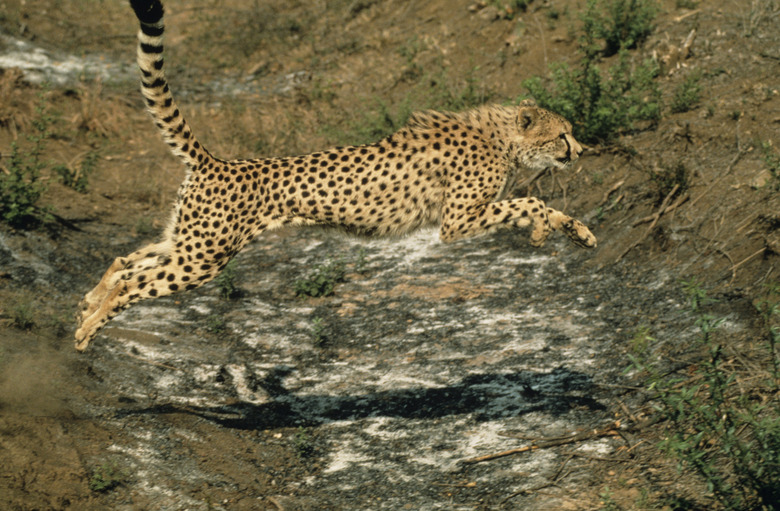What Does Zoology Consist Of?
Zoology is the study of the animal kingdom. Zoologists study everything from single cells in organisms to an entire population of animals and how the animals interact with the larger environment. Zoology has of several areas of study, including anatomy and physiology, cell biology, genetics, developmental biology, behavior, ecology, evolution and the classification of animals. Zoology covers anything and everything related to the animals.
Anatomy, Physiology and Cell Biology
Anatomy, Physiology and Cell Biology
Anatomy is the field that investigates the external and internal form of an animal. Zoologists frequently study the external body form of an animal and compare it with other body forms. This aids in the classification of animals. Physiology involves studying cells, organ, tissues and organ systems and how they interact. In addition, physiology examines the mechanical, physical and biochemical interactions of these systems. The study of cell biology consists of unraveling how cells in animals function. For example, a zoologist might undertake the study of how the stinging cells in a jellyfish work in order to understand how it produces the chemical that stings.
Genetics and Developmental Biology
Genetics and Developmental Biology
Zoology attempts to understand the genetic makeup of animals by investigating individual genes and genomic sequences. Developmental biology examines how animals grow and develop, which can include anything from the process of cell growth and tissue building to the study of environmental triggers that cause the production of blood cells.
Behavior and Ecology
Behavior and Ecology
Zoology even consists of the study of animal behavior under natural conditions. This can help scientists understand how animals in nature may react behaviorally under certain conditions, and this can help people protect threatened species. The ecology of animals is also an important area of study in zoology. It encompasses the study of foraging behaviors, how populations of animals interact, social behavior and breeding systems.
Evolution and Classification of Animals
Evolution and Classification of Animals
Zoologists study the evolution of animals — that is, how they may have originated and changed over time. Zoologists use the fossil record and even genome sequences to examine how certain animals have evolved. Zoologists also study how to group and categorize animals, which is also called taxonomy. Many zoologists specialize in this area, and the use of genome sequencing is increasingly important. Some areas of zoology prefer to concentrate on different types of animals, such as invertebrates or vertebrates.
References
- Encyclopedia Britannica: Zoology: Areas of Study
- MedicalNewsToday.com: What Is Physiology?
- University of Cambridge Department of Zoology: Evolutionary Genetics and Genomics
- National Center for Biotechnology Information: Developmental Biology, 6th Edition; Scott F. Gilbert
- University of Cambridge Department of Zoology: NST 1B Ecology
Cite This Article
MLA
Schab, Terri. "What Does Zoology Consist Of?" sciencing.com, https://www.sciencing.com/zoology-consist-of-15880/. 24 April 2017.
APA
Schab, Terri. (2017, April 24). What Does Zoology Consist Of?. sciencing.com. Retrieved from https://www.sciencing.com/zoology-consist-of-15880/
Chicago
Schab, Terri. What Does Zoology Consist Of? last modified August 30, 2022. https://www.sciencing.com/zoology-consist-of-15880/
